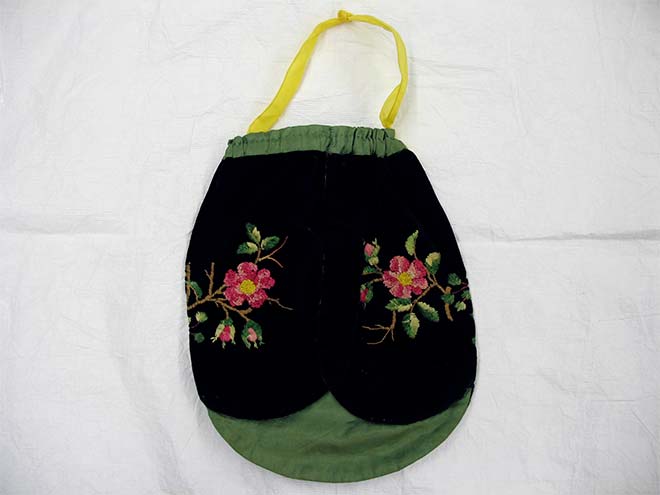
The 1930s depression ended the arts and crafts movement in New Zealand because there was no longer a market for relatively expensive, hand-made crafts. The thrifty, make-do-and-mend craft skills characteristic of the early settler period had endured and now came in very handy. The fabric of this embroidered silk velvet evening bag was recycled from a mantelpiece runner or pelmet – the scalloped edges of the original piece have been incorporated into the bag.
Te whakamahi i tēnei tūemi
Museum of New Zealand Te Papa Tongarewa
Reference:
GH017065
Permission of the Museum of New Zealand Te Papa Tongarewa must be obtained before any re-use of this image.









Tāpiritia te tākupu hou